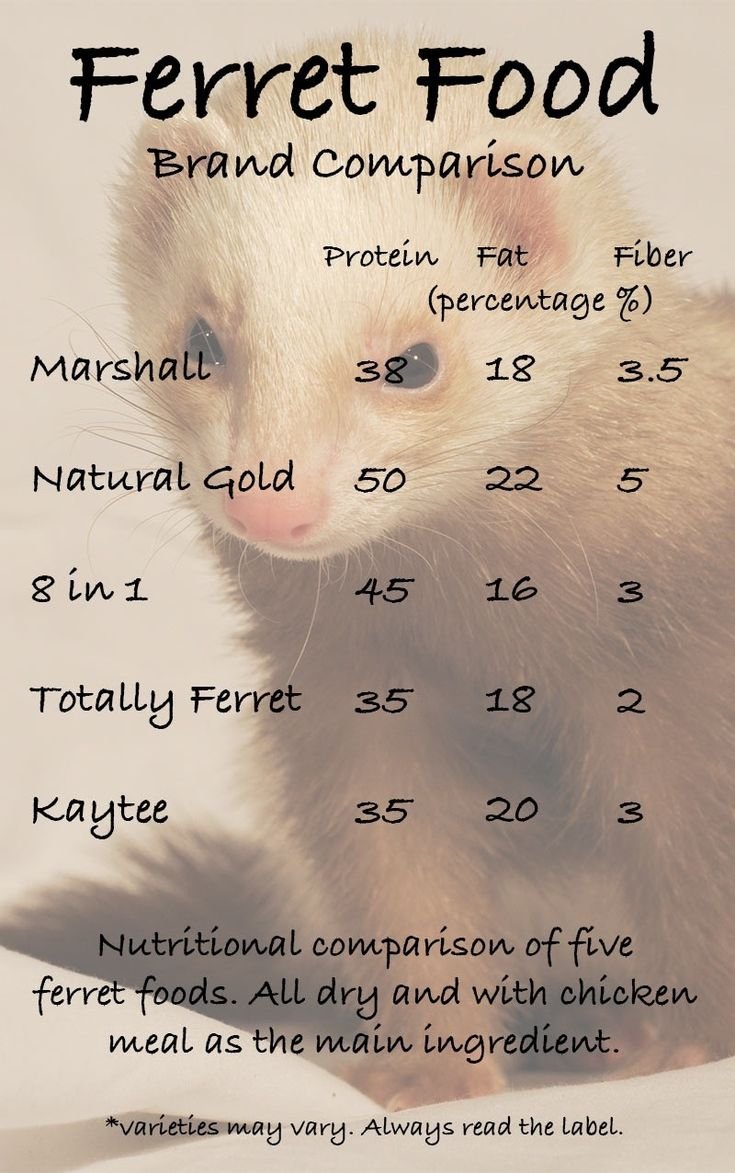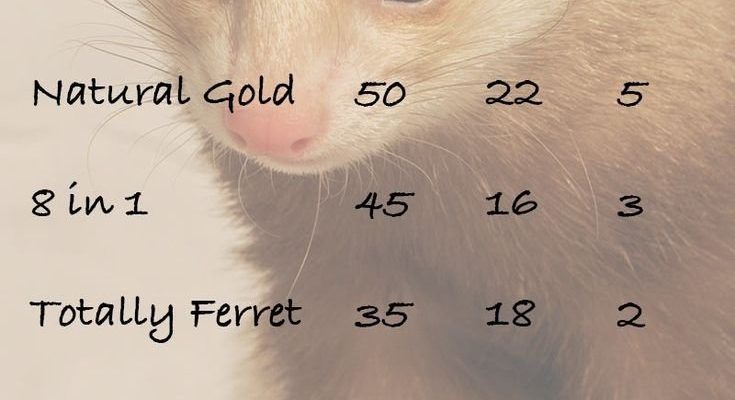
You might be wondering about their specific nutritional needs and how often you should feed them. They’re not your everyday pet; ferrets have special requirements that differ from cats or dogs. Let’s dig deeper into what ferrets eat, the best foods to provide, and how to create a feeding schedule that works for you and your little furball.
Understanding Ferret Nutrition
Ferrets are obligate carnivores, which means their diet should primarily consist of meat. This is crucial because their bodies are designed to digest animal protein most efficiently. Think of their digestive system as a finely tuned machine that thrives on a diet rich in high-quality animal-based ingredients. When shopping for food, it’s essential to check the protein content—aim for at least 30% protein in their diet, along with a good balance of fat and carbohydrates.
Ferrets need specific vitamins and minerals to thrive, especially taurine and arginine, which are often found in animal tissues. These amino acids support their heart health and provide energy for their playful antics. When you’re looking at ferret food, look for brands that include at least two meat sources at the top of the ingredient list. You want to ensure your little buddy is getting the best nutrition possible.
Safe Foods for Ferrets
When it comes to feeding ferrets, not all foods are created equal. Here’s a list of safe foods that you can incorporate into their diet:
- High-Quality Ferret Kibble: Invest in a good brand that focuses on meat-based ingredients. Look for kibble specifically designed for ferrets, as it will meet their nutritional needs.
- Raw Meat: Options like chicken, turkey, rabbit, or even organ meats (like liver) provide essential nutrients. Just be sure to consult your vet if you’re unsure about raw diets.
- Cooked Eggs: These are a fantastic protein source. Scrambled or hard-boiled eggs can be a special treat, but avoid adding any salt or seasoning.
- Ferret Treats: Commercial treats meant for ferrets can be given occasionally. Just make sure they’re high in protein and low in fillers.
Honestly, it’s important to avoid giving them common dog or cat food. Ferrets have different nutritional requirements, and feeding them the wrong type can lead to health problems. Your ferret’s tummy deserves only the best!
Foods to Avoid
While it’s crucial to know what to feed your ferret, it’s equally important to understand what to avoid. Some foods can be harmful or even toxic. Here’s a quick list of what not to feed your furry friend:
- Fruits and Vegetables: Ferrets can’t digest these properly, so skip the salad. Foods like grapes and onions are particularly dangerous.
- Processed Foods: Anything with too many fillers, sugars, or preservatives shouldn’t make its way into their meals.
- Dry Cat Food: While it may seem similar, cat food generally doesn’t have the right nutrient balance for ferrets, especially in protein content.
Here’s the thing: Always keep an eye on ingredients and label information. If you’re ever in doubt, don’t hesitate to consult your veterinarian. They can provide guidance tailored to your ferret’s unique needs.
Creating a Feeding Schedule
Now that you know what ferrets can eat, let’s talk about how often you should feed them. Establishing a feeding schedule is essential for your ferret’s health and happiness. Most ferrets do well with multiple small meals throughout the day.
You can follow a simple schedule like this:
- Adult Ferrets: Feed them 2-3 times daily. Providing small portions of high-quality kibble in the morning, afternoon, and evening works well.
- Young Ferrets: They need more frequent meals—around 4 times a day—because they have higher energy needs.
Don’t forget that ferrets have a habit of hoarding food! If they seem to be stockpiling kibble, that’s completely normal behavior. Just make sure to monitor the portions to avoid overfeeding, especially if you notice them gaining too much weight.
How to Transition Your Ferret’s Diet
If you’re introducing new foods into your ferret’s diet, it’s crucial to do it gradually. Ferrets can be picky, and a sudden change might upset their stomach. Start by mixing a small amount of the new food with their current diet. Over time, you can increase the new food and decrease the old.
Plan on a one- to two-week transition period. This gradual approach gives your ferret’s digestive system time to adjust. You’ll get to observe how they respond to the new food, too, which can be quite the entertaining show!
Hydration Is Key
While we’ve focused a lot on solid food, let’s not forget about hydration. Ferrets need access to fresh water at all times. You can offer water in a bowl or a sipper bottle. Some ferrets prefer one over the other. Just keep an eye on it daily to ensure it’s clean and full.
You might notice your ferret enjoys splashing in their water bowl—it’s part of their playful nature! Just remember, hydration plays a critical role in their overall health.
Consulting Your Veterinarian
It’s always a great idea to check in with a veterinarian who understands ferrets. They can help guide you in choosing the right diet and address any specific dietary concerns. Regular check-ups are vital for keeping your ferret in tip-top shape.
A vet can also provide advice on supplements if needed, especially if your ferret has unique health issues or dietary restrictions. Plus, this helps to ensure that little antics continue for years to come!
In closing, providing the right diet and feeding schedule for your ferret may seem like a lot of work at first, but it’s well worth the effort. By paying attention to what goes into their furry little bodies, you can set your ferret up for a long, happy, and healthy life. Now, go ahead and pamper your little companion with some delicious, safe meals!

